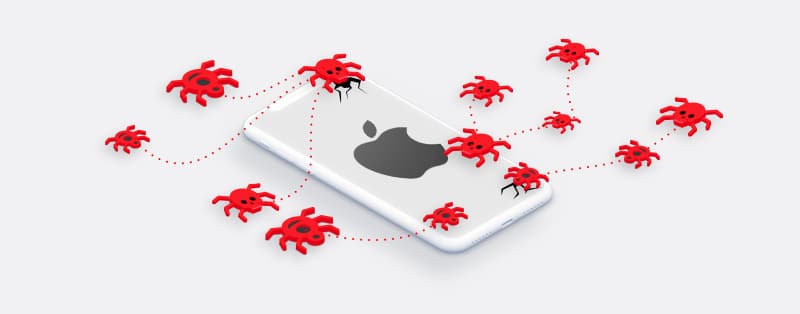Jailbroken iPhones are More Likely to be Hacked

iPhone users often complain that their phones can be quite constrictive. Apple, makers of iOS devices, implement some restrictions that prevent users from using their devices any way they want. For instance, users typically cannot download apps from other sites apart from the Apple App Store.
What are the reasons for these restrictions? For one, Apple claims that the restrictions are for user safety. Additionally, there are legal protection aspects of it. Some of the features on iPhones are trademarked, and using the phones without any restriction will be akin to a violation of the Intellectual Property rules. Finally, Apple makes money by customizing its devices. As you can see, none of these reasons are geared towards customer satisfaction.
Thus, some users have found a way to get around this challenge. This is known as jailbreaking an iPhone. We will discuss how that works, the pros and cons of that, specifically, the possibility of getting hacked when you jailbreak your iPhone. Stay with us.
What is Jailbreaking?
Jailbreaking simply means removing the software restrictions that Apple implements on iPhones.
Technically, jailbreaking is known as privilege escalation. This is a situation where a person takes advantage of some design flaw or vulnerability in an iPhone to increase their level of access. This is often how jailbreaks occur. A user detects a vulnerability or backdoor in the iPhone’s design and exploits it to escalate their access.
A process that is similar to jailbreaking is known as rooting a device. Rooting a device means giving uninhibited root access to the device’s operating system. This is basically what happens when you jailbreak your iPhone. Although you can root both an Android and iPhone, the term is more often used to refer to Android devices.
Similarly, jailbreaking an iPhone is not the same as unlocking it. Unlocking an iPhone means removing the carrier restriction the device comes with. Thus, even jailbroken devices can be unlocked to evade carrier restrictions. However, jailbreaking is a more elaborate process that could ultimately change a phone’s core workings.
Pros of Jailbroken Devices
Before we head over to the many disadvantages of jailbreaking your phone, we will highlight some of the pros the process can grant you. But, ultimately, these perks will not be worth it.
Customization
Jailbreaking your device allows you to customize it to your preference. Thus, you can remove some default apps, download apps, and software from whatever site you want, and generally modify whatever you want. You can customize your home screen, install console emulators and tweak the operating system of the device. In most cases, it is individuals who are tech-savvy that can take advantage of this.
Easily Unblock Carrier Restrictions
iPhones come with carrier restrictions. You can unlock the device without necessarily having to jailbreak it. However, jailbreaking your device makes it easy to unlock it.
Cons of Jailbreaking Your iPhone
While it may appear as though there are some perks to jailbreaking your device, the perks are not worth it in most cases. The disadvantages outweigh the benefits. This is especially if you consider that you may be damaging your device irreparably.
The biggest threat to jailbroken devices is their susceptibility to malware. When you jailbreak a device, you tamper with the default security features the iPhone comes with. Of course, iPhones are not invincible. However, they are known to have some of the best security features of all the mobile devices you could find. Jailbreaking your iPhone tampers with this setting.
There are figures to back up this assertion. Research shows that in 2015 alone, more than 250 000 jailbroken iPhones got hacked. They got exposed to ransomware, and many had to pay hefty ransoms to regain access to their devices.
Apart from the direct attack you face when you jailbreak your device, there is also the possibility of attracting malware to your device. When your device is jailbroken, it means you can download unauthorized apps. Some of these apps are pirated, and others could even have malware hiding in them. Thus, downloading these apps open you up to problems. Furthermore, you could run into legal trouble. Downloading pirated material is an offense in most countries. Therefore, when you jailbreak your device and do so, you could land yourself in trouble.
Additionally, jailbreaking your device is essentially taking advantage of a vulnerability. The disadvantage here is that you will be opening a potential can of worms. Your device stands the risk of crashing at any point or spoiling irretrievably.
Finally, the greatest risk with jailbreaking your device is the loss of warranty. Apple takes a hard stance against jailbreaking. Hence, engaging in that is tantamount to a violation of the agreement with the company. In such a situation, you’ll lose any warranty you have.
Conclusion
Despite its perceived perks, jailbreaking your iPhone is not recommended. Several disadvantages are lurking in the background for every advantage you enjoy, chief amongst them being the possibility of malware infestation. Thankfully, you can always reverse a jailbreak. You can do a hard reset or update your device to the latest version of the iOS to undo the jailbreak.
Related Posts
- 5 Best Free VPNs for iPhones
- 5 Biggest Data Breaches to Hit India in 2023
- Top 10 Hacking Methods in Recent Times
- Top 10 Hacker Groups of Recent Times
- How to Hack Bluetooth Devices: 5 Common Vulnerabilities
- Hackers Dump Stolen FIFA 21 Code Online After Failing to Obtain a Ransom
- Chinese Hackers Allegedly Take Advantage of a Microsoft Exchange Flaw To Steal Call Records
- Vulnerabilities in Home Routers: Potential Threats from Hackers
- Researchers Discover New DNS Vulnerability With Nation-State Spying Capabilities
- What Is a Zero-Day Attack and How Can You Protect Against It?